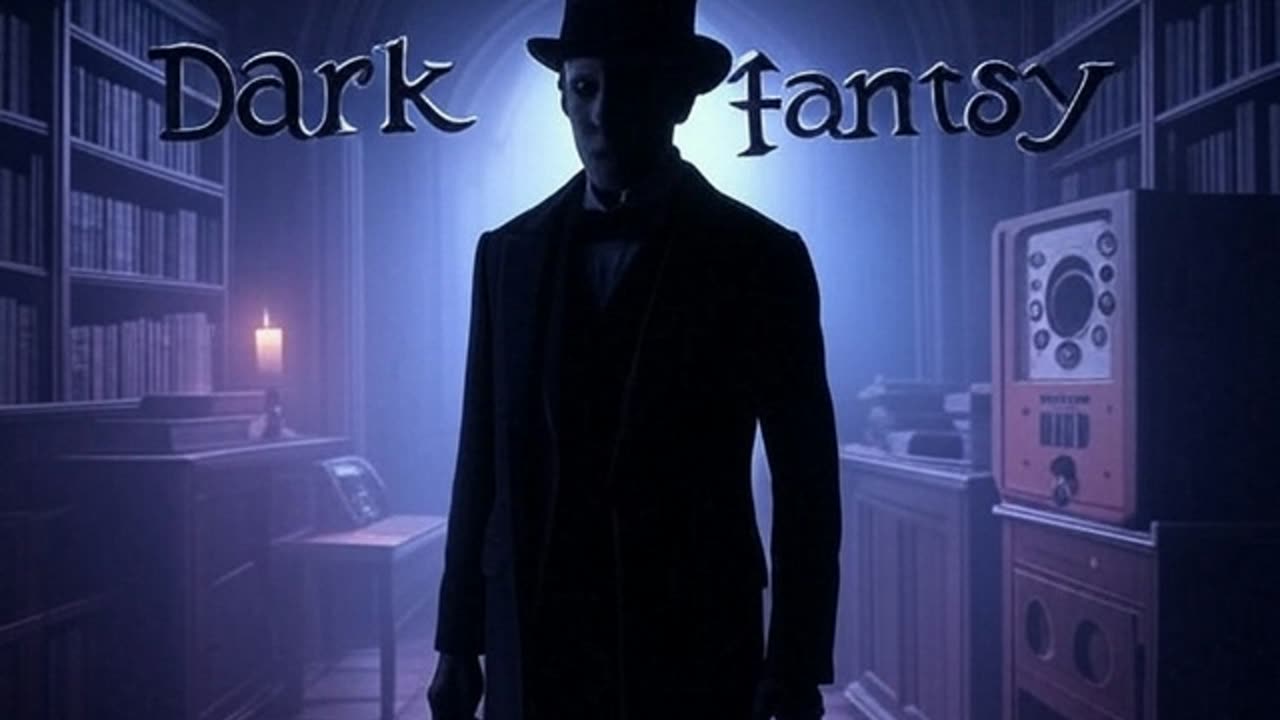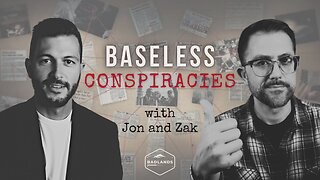Premium Only Content

Dark Fantasy April 3, 1942 - The Thing in the Darkness
"The Thing in the Darkness," episode 21 of the radio horror series Dark Fantasy, aired on April 3, 1942, over the NBC Red Network from WKY in Oklahoma City. Written by Scott Bishop, this supernatural thriller delves into the terror of an unseen, malevolent entity. The story likely centers on a protagonist—perhaps a curious investigator or a lone traveler—who encounters a mysterious darkness in a remote setting, such as a haunted house or fog-shrouded forest. Strange phenomena, like whispers, cold drafts, or objects moving inexplicably, hint at a sinister presence. As the protagonist probes deeper, the "thing" reveals itself as a vengeful spirit or otherworldly force, preying on fear or past sins. The episode builds suspense through atmospheric sound effects, such as eerie hums and sudden silences, culminating in a chilling confrontation where the protagonist either escapes or succumbs to the darkness. Bishop’s narrative blends psychological horror with the unknown, characteristic of Dark Fantasy’s grim tone.
Note: Specific plot details are scarce due to limited surviving records, but the episode’s title and series context suggest a focus on supernatural terror, as noted in sources like Relic Radio.
Cast and Crew
Cast:
Ben Morris as the lead (likely the protagonist, typical for Bishop’s scripts)
Supporting actors: Likely included regulars like Eleanor Naylor Corin, Fred Wayne, or Muir Hite (specific roles not documented)
Announcer: Tom Paxton (frequent announcer for Dark Fantasy)
Crew:
Writer: Scott Bishop (creator and sole writer for Dark Fantasy)
Director: Likely Scott Bishop or an NBC staff director
Producer: NBC Red Network, possibly overseen by George Zachery
Music: NBC house orchestra, possibly arranged by Cyril Armbrister
Sound Effects: NBC sound effects team, using techniques like wind machines or amplified whispers for the eerie ambiance
Note: Exact cast and crew details are not fully documented. The above is based on Dark Fantasy’s standard production team and recurring actors during the 1941-1942 season, with Paxton’s role confirmed in archival sources.
News in the United States (Week of April 3, 1942)
World War II Mobilization: The U.S. accelerated war production, with the War Production Board banning non-military car manufacturing. Factories shifted to producing tanks and aircraft, employing thousands.
Bataan Crisis: The Battle of Bataan neared its end, with U.S. and Filipino troops surrendering to Japanese forces on April 9. News of the dire situation, including food shortages, dominated headlines.
Japanese American Internment: Relocation of Japanese Americans intensified, with thousands moved to camps like Manzanar and Poston under Executive Order 9066, sparking debates over civil rights.
Rationing Measures: The Office of Price Administration expanded rationing, introducing limits on coffee and shoes. War bond sales surged, with celebrities like Kate Smith promoting drives.
Cultural Note: The film The Jungle Book, a live-action adaptation starring Sabu, was released, offering wartime audiences an exotic escape.
News in the World (Week of April 3, 1942)
Pacific Theater: Japan captured Bataan and continued offensives in Burma, cutting the Burma Road and isolating China. Allied forces in Australia planned counterattacks under General Douglas MacArthur.
European Theater: Nazi Germany’s U-boats sank 25 Allied ships in the Atlantic, disrupting supplies. The Luftwaffe bombed British ports, targeting Liverpool and Southampton.
Soviet Front: The Red Army held defensive lines near Leningrad, but German forces prepared for a summer offensive. Soviet partisans disrupted Nazi supply lines in occupied territories.
Holocaust: Mass deportations to extermination camps like Sobibor began, with thousands of Jews from Poland and France sent to their deaths. Allied intelligence received early reports of atrocities.
Allied Diplomacy: The U.S. and Britain coordinated Lend-Lease aid to the Soviet Union, with Roosevelt pressing Churchill for a second front to relieve Soviet pressure.
-
 5:55:11
5:55:11
MattMorseTV
7 hours ago $54.01 earned🔴Trump's '60 Minutes' INTERVIEW + MUCH MORE.🔴
90.7K32 -
 2:02:36
2:02:36
Badlands Media
12 hours agoBaseless Conspiracies Ep. 157
22.2K17 -
 2:06:09
2:06:09
Inverted World Live
8 hours agoMysterious Crash at Area 51 | Ep. 134
15.6K10 -
 2:48:59
2:48:59
TimcastIRL
6 hours agoTrump Endorses Cuomo, Says NO COMMIE MAMDANI, Obama REFUSES To Endorse Mamdani | Timcast IRL
253K148 -
 LIVE
LIVE
Drew Hernandez
1 day agoGOP CIVIL WAR: TUCKER CARLSON DERANGEMENT SYNDROME AT ALL TIME HIGH
994 watching -
 14:44
14:44
Sponsored By Jesus Podcast
1 day agoYou Can't Serve God & MONEY | Is Money the Root of All Evil?
15.9K15 -
 2:47:28
2:47:28
Barry Cunningham
10 hours agoYOU'VE BEEN MISINFORMED! GREED IS ACTUALLY GOOD! ESPECIALLY NOW! (AND MORE NEWS)
89.3K38 -
 7:18:24
7:18:24
SpartakusLIVE
9 hours agoSNIPING in Battlefield 6 - REDSEC || Monday MOTIVATION to CONQUER the Week
49.8K4 -
 49:25
49:25
ThisIsDeLaCruz
5 hours ago $15.14 earnedBack Stage Pass with Avenged Sevenfold
49.2K8 -
 6:43:40
6:43:40
GritsGG
11 hours agoWorld Record Win Streak Attempt! #1 Most Wins 3880+!
26K2